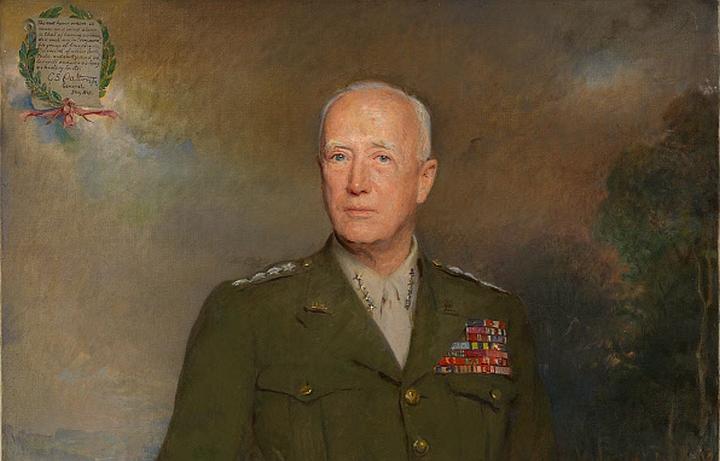“No matter where we moved,” wrote Beatrice Patton of her husband seven years after his death in 1945, “there was never enough room for the books. We were indeed lucky that an army officer’s professional library is transported free.”
As a youngster, George Patton (1885–1945) wanted only to be a soldier. The history of his well-to-do family included a long legacy of military service, and his boyhood idols were figures like Julius Caesar, Joan of Arc, and Napoleon. John Mosby, the famed Confederate cavalry commander, was a family acquaintance and often visited the Patton home, sharing stories of the war with the young Patton.






